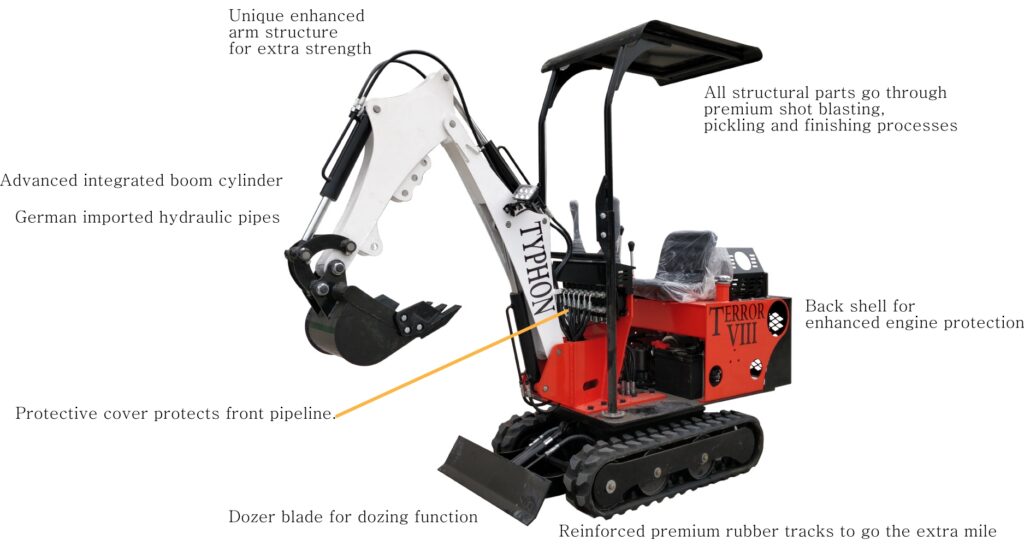Mini excavators are compact and highly maneuverable excavation machines that are used for a variety of digging and excavation tasks. They are typically smaller in size compared to standard excavators, making them suitable for use in tight spaces and confined areas.
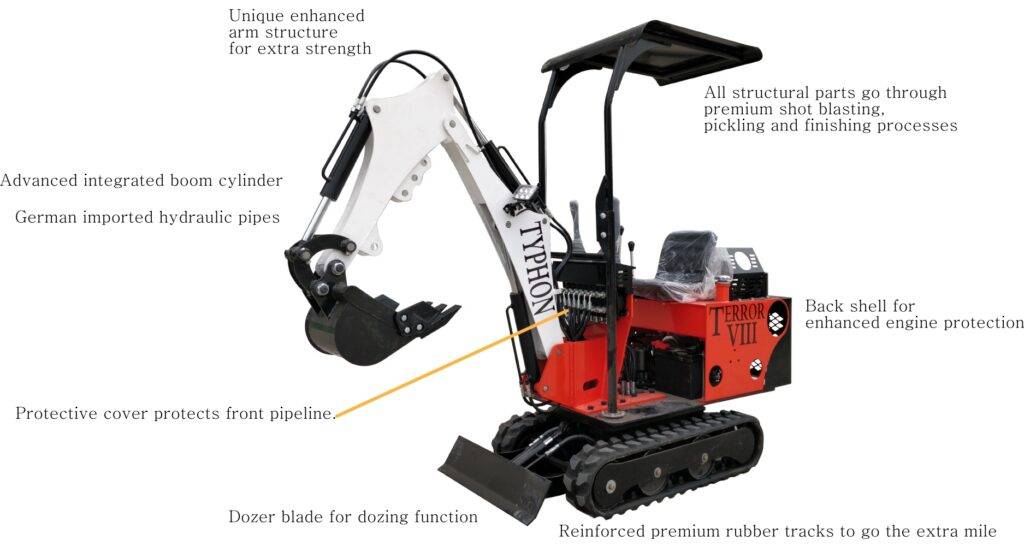
Some common applications of mini excavators include digging foundations, trenching, grading, demolition, and landscaping. Mini excavators are typically powered by diesel engines and come in both tracked and wheeled versions.
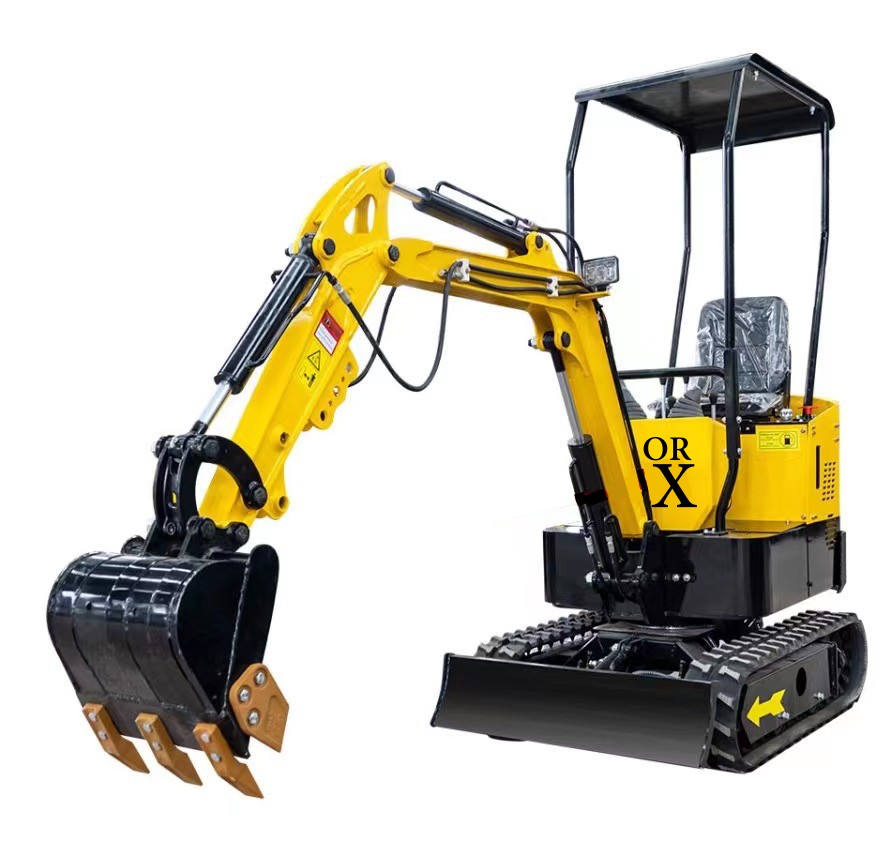
To determine which excavator is suitable for your project, consider the following factors:
- Project size and scope: Consider the size and scope of your project and determine the necessary digging depth, reach, and digging force.
- Site conditions: Take into account the type of ground conditions, such as soil type and stability, and whether the excavator will be operating on flat or uneven terrain.
- Project requirements: Consider the specific tasks that need to be performed and the type of attachments that will be required, such as a digging bucket, grading bucket, or demolition hammer.
- Accessibility: Think about the access to the job site and whether the excavator will be able to maneuver in tight spaces or restricted access areas.
- Budget: Finally, consider the budget for your project and choose an excavator that offers the necessary capabilities within your budget range.
It is recommended to consult with an experienced professional excavator dealer to determine the best equipment for your specific project requirements. We can provide recommendations based on our experience and expertise in the industry.
 A TERROR X with an auger
A TERROR X with an augerMini excavators are used for a variety of tasks including:
- Excavating and digging foundations for buildings, walls, and structures
- Trenching for utilities such as water, gas, and electrical lines
- Grading and leveling of land for construction, landscaping, and agriculture
- Demolition of buildings, structures, and other obstacles
- Landscaping and garden preparation, including digging and removing dirt, rocks, and trees
- Loading and unloading heavy materials, such as dirt, rocks, and debris
- Clearing of debris and waste in construction sites and other areas
- Digging and laying pipes, conduit, and other underground utilities.
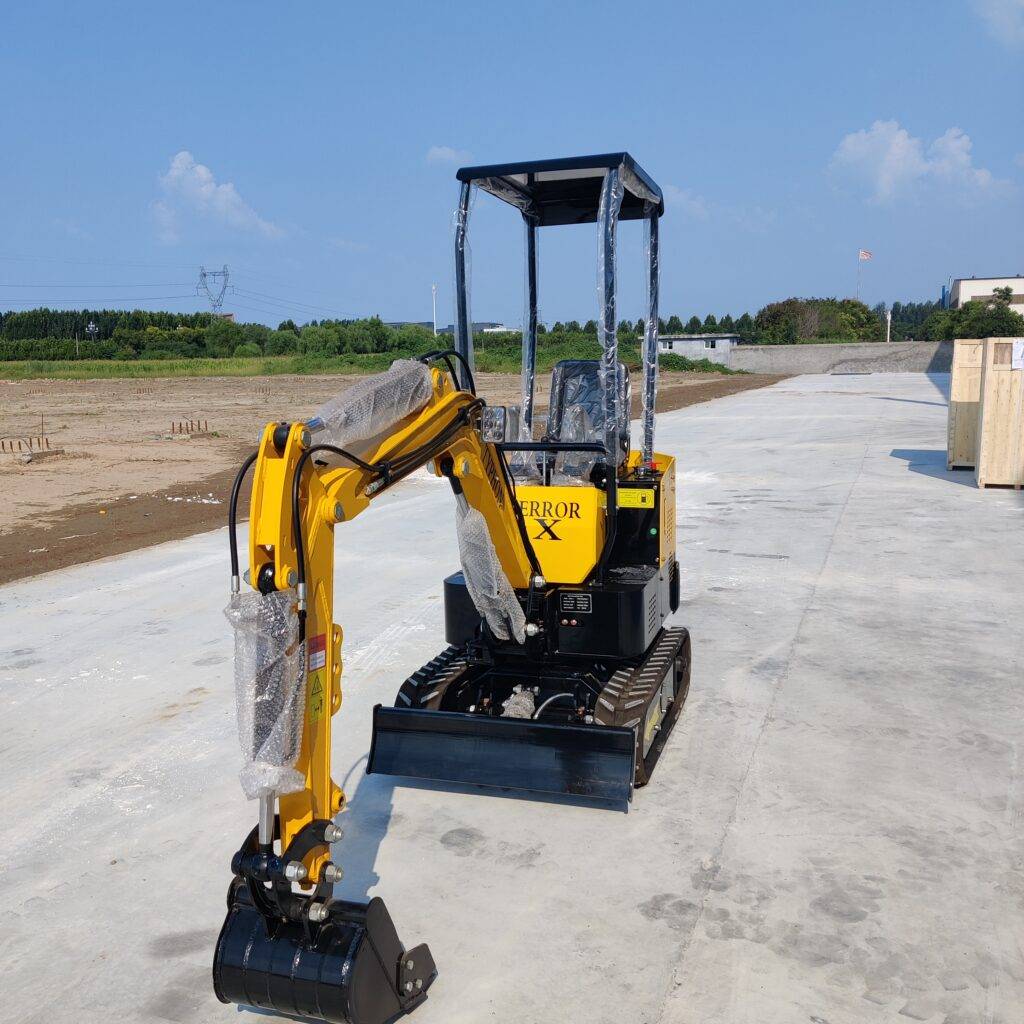
Mini excavators are highly versatile and can be used in a range of industries, including construction, landscaping, agriculture, and waste management. Their compact size and maneuverability make them a popular choice for projects with limited access and space.
A mini excavator can remove stumps with the use of a stump bucket or a grapple attachment. The stump bucket is specifically designed for removing stumps, and it has a narrow profile and teeth to dig around the stump and extract it from the ground. The grapple attachment can also be used to remove stumps, as it has jaws that can grip and extract the stump from the ground.
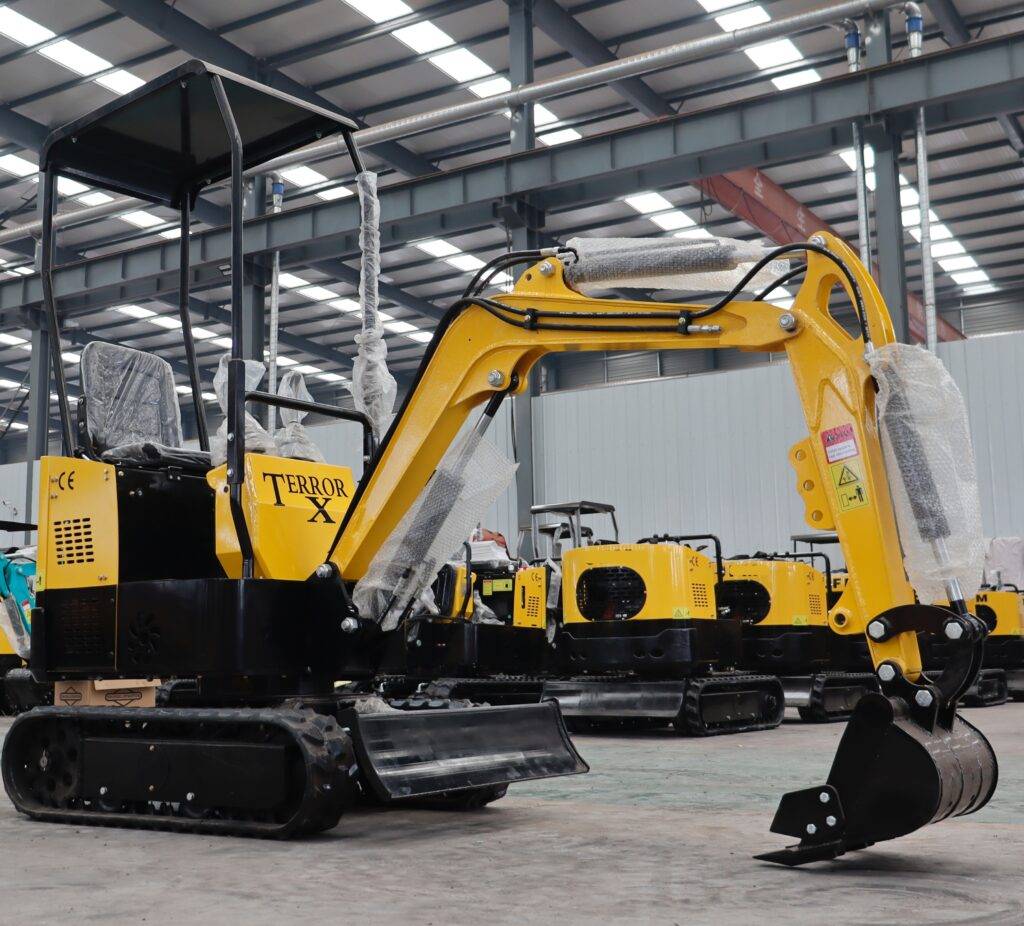
It is important to note that removing stumps with a mini excavator can be a challenging and demanding task, and it requires experience and proper technique to be done safely and efficiently. The size and depth of the stumps, as well as the type of soil and the location of any underground utilities, will also influence the ease and efficiency of removing stumps with a mini excavator.
A mini excavator can also remove concrete with the use of a hydraulic breaker attachment. The hydraulic breaker attachment can be used to break up and remove concrete structures such as foundations, walls, slabs, and pavement. Mini excavators with a breaker attachment are commonly used for demolition, excavation, and construction projects that involve breaking up and removing concrete structures.
Removing concrete with a mini excavator can be a challenging and demanding task, and it requires experience and proper technique to be done safely and efficiently. It is recommended to consult with a professional excavator dealer or rental company to determine the best equipment and attachments for your specific project requirements.

